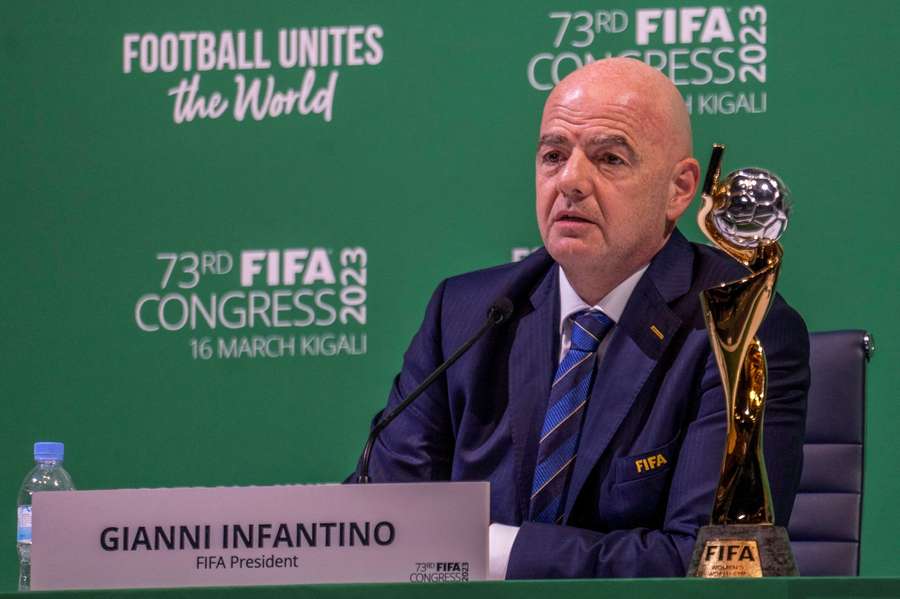Women's prize money at World Cup 10 times what it was in 2015 - Infantino

The figure, however, is still considerably lower than the $440million total prize money awarded at the men's World Cup in Qatar last year.
"For the first time ever, I (plan to) dedicate a specific portion of this payment, which mainly has to go to football development, but a specific portion of that should go of course to the players," Infantino said, in announcing Step Two of a three-step plan.
Step One, Infantino said, will be equal conditions and services, such as accommodation and flights, for all men and women playing at a World Cup.
"This will be a reality already for the Cup in 2023, same conditions as for the World Cup '22 will be for the players and coaching staff in the Women's World Cup in '23."
The women's teams will have dedicated base camps at the World Cup that opens on July 20 in New Zealand and Australia.
Step Three, he said, would be the most complicated and would include a dedicated marketing strategy for the women's game.
"Our mission will be able to have equality in payments for 2026 men's and 2027 women's World Cups," he said.
Global soccer's players union FIFPRO applauded Thursday's announcement, saying it showed the intent of players and FIFA to work together.
"Through the voice and solidarity of players around the world over months and years of campaigning, significant progress has been made in the conditions, prize money, and prize money redistribution for the 2023 FIFA Women’s World Cup," it said in a statement.
In October, 150 players wrote to FIFA seeking equal Women's World Cup conditions.
NO SAUDI SPONSORS
Visit Saudi will not be a sponsor at the women’s World Cup in Australia and New Zealand later this year, but Infantino has not ruled out future commercial opportunities for gulf nation in women’s football.
The Saudi Arabia tourism board had been touted as a potential sponsor of the expanded 32-team tournament, which drew sharp criticism from a number of quarters, though Infantino says it is all a "storm in a tea cup".
The greatest ire came from Football Australia, who said there was an "overwhelming consensus that this partnership does not align with our collective vision for the tournament and falls short of our expectations".
Other leading figures in the women's game also criticised the plan, including veteran US forward Alex Morgan (33), who said it 'morally' did not make sense.
"There were discussions with Visit Saudi, but in the end these did not lead to a contract. So it was a storm in a tea cup," Infantino said.
"But having said that, FIFA is an organisation made up of 211 countries. There is nothing wrong with taking sponsorships from Saudi Arabia, China, United States of America, Brazil or India."
Infantino added that critics of the potential sponsorship ignored the commercial arrangements that already exist between companies in Saudi Arabia and Australia.
"When it comes to Australia, they have trade with Saudi Arabia (worth) $1.5-billion per year. This doesn’t seem to be a problem?
"There is a double standard which I really do not understand. There is no issue, there is no contract, but of course we want to see how we can involve Saudi sponsors, and those from Qatar, in women's football generally," he said.
"This year we will have the women's World Cup. This should be a celebration of women, it has to be. And yet there's this negativity which always comes out. Why is that?
"Why can we not try a little bit to focus on the positive."
Saudi Arabia Crown Prince Mohammed bin Salman has introduced reforms allowing women greater control over their lives in recent years but men still retain a tight grip on power in the kingdom.
